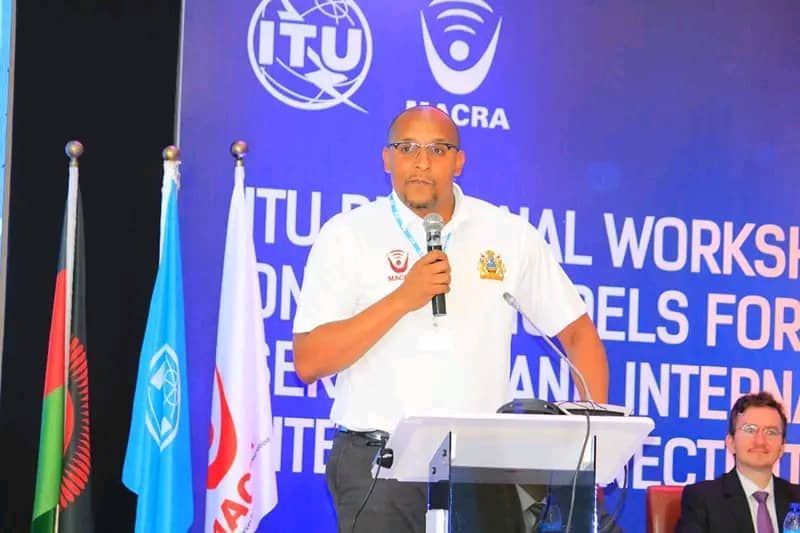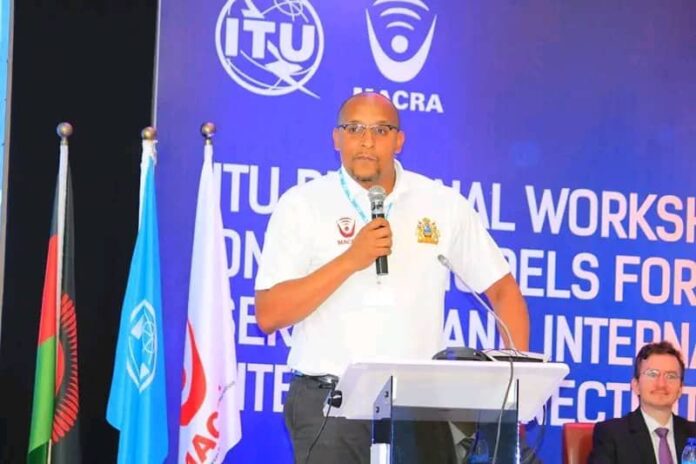By Burnett Munthali
In a powerful audio message released on Sunday, February 2nd, 2025, Comrade Edwards Kambanje revealed that significant preparations are underway for a series of demonstrations and vigils in response to the Malawi Communications Regulatory Authority’s (MACRA) controversial decision to procure a surveillance machine. The protests, set to take place in Lilongwe and Mzuzu, are being organized to question whether the authority is still intent on acquiring the technology or if the purchase has already been made.
Kambanje, who has consistently voiced concerns over national issues, condemned MACRA for allegedly misleading the public regarding the cost of the surveillance equipment. Initially, the authority had stated that the price for the technology was 1.5 million US dollars—approximately 4.5 billion Malawian kwacha. For Kambanje, this inflated figure only strengthens his argument that such a purchase is grossly inappropriate at a time when the nation faces severe economic challenges.

Malawi is currently grappling with a myriad of issues, including an acute shortage of foreign currency, rising fuel costs, a dire lack of essential medicines in hospitals, and insufficient learning resources in public schools. With these pressing concerns affecting the daily lives of ordinary citizens, Kambanje believes that government priorities should be focused on addressing these basic needs rather than spending vast amounts of money on surveillance technology. He characterized the procurement as a gross misallocation of resources, one that should be halted immediately.
Further amplifying his concerns, Kambanje highlighted that the decision to purchase the surveillance machine was made without adequate consultation with key stakeholders. Neither the Malawi Media Council, the Malawi Human Rights Commission, nor any concerned citizens had a say in the matter. Kambanje expressed his fear that the technology could be used to undermine the country’s democratic values. Citing examples from other countries where similar technologies have been deployed to restrict freedom of expression and stifle political dissent, he warned that Malawi could be heading in the same direction.
The surveillance machine, in Kambanje’s view, poses a significant threat to the democratic rights of Malawians. There are genuine fears that such a tool could be wielded as a means to monitor, intimidate, and silence those who speak out against the government. With the nation’s democratic freedoms under the microscope, Kambanje and his supporters argue that this purchase is not just an economic misstep but a direct assault on the rights of the people to freely express their views.
Moreover, Kambanje raised concerns about the timing of the procurement. At a time when the country is struggling with its most basic needs, it is difficult to justify such an expensive acquisition. The money that would go toward the surveillance equipment could be better spent on addressing Malawi’s pressing shortages of fuel, medicine, and school supplies. The decision to prioritize a surveillance system over these critical needs has added fuel to the fire of public outrage, and Kambanje has called on all Malawians to unite in protest.
The protests are scheduled for February 13th, 2025, and will take place at MACRA’s offices in both Lilongwe and Mzuzu. Kambanje made it clear that the objective of these demonstrations is not to request permission from local authorities but to notify them of the intent to protest. The focus of the protests, he stressed, is to send a clear message to MACRA that the public’s dissatisfaction cannot be ignored. The demonstrations, according to Kambanje, will be peaceful, with the goal of raising awareness and exerting pressure on the regulatory body to reconsider its decision.
Kambanje’s call to action is an urgent appeal to the Malawian public. He urged citizens from all walks of life to come together in solidarity and demand that their voices be heard. By joining the demonstrations, Malawians will not only protest the surveillance purchase but also make it known that they will not stand idly by as decisions are made in isolation from the needs and concerns of the public. The central message of the protests, Kambanje emphasized, is that the people of Malawi will not tolerate actions that threaten their democratic freedoms.
As the date of the demonstrations draws near, the debate surrounding MACRA’s purchase of the surveillance machine is expected to dominate public discourse. The decision could have far-reaching consequences for the future of governance in Malawi, particularly regarding the balance between national security and the protection of citizens’ rights. It will also serve as a litmus test for the government’s commitment to democratic principles in a time of crisis.
In conclusion, the public outcry led by Comrade Edwards Kambanje signals a growing frustration with the Malawi Communications Regulatory Authority’s handling of the surveillance procurement. The lack of consultation with stakeholders, the financial mismanagement, and the potential threat to democratic rights have all converged to create a perfect storm of public dissent. As the protests on February 13th, 2025, approach, the government and MACRA will be under increasing pressure to reconsider their position. The outcome of these demonstrations could determine whether Malawi continues to honor its democratic values or whether the voices of dissent will be silenced under the weight of costly surveillance technologies.



